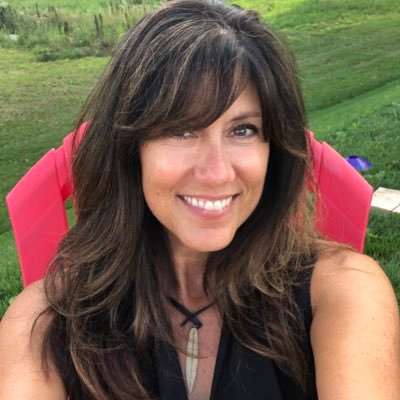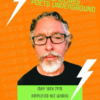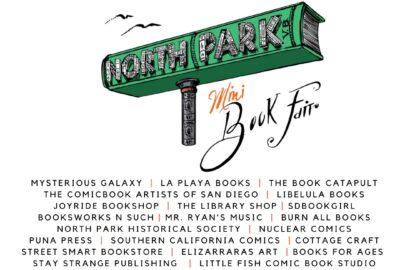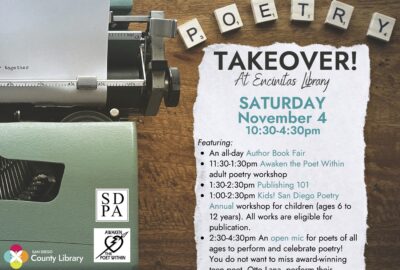Lizzie Wann, Puna Press Live
LifeBeat Follow-Up: Kristen Cusato
Let’s spend some time catching up with the vibrant Kristen Cusato who we last spoke to on episode #7 (watch the episode) back in April 2021. Learn how Kristen loves to spend her mornings, how she still feels connected to her late mother, the ramifications of COVID-19 on people living with dementia, and much more. This Q&A was conducted over email, and Kristen provided these answers on April 24, 2022.

~~
Lizzie: You might recall that I began the show with “lightning round” questions. I asked what your favorite go-to karaoke song is. For this follow-up, is there anything about you that people are surprised to learn?
Kristen: Sometimes, I am awkward in social situations. You would think otherwise, given my former career, but post-COVID, I think we are just figuring out how to “be.” And it will be different from before.
In response to the next question about being a morning or night person, you didn’t have a definitive answer. What’s one morning or nightly routine that you just can’t go without?
Love my coffee and sitting on my screened in porch, face to the sun…when the sun is shining. It starts my day off with light and optimism. My coffee likes to be mixed up with caramel creamer. They are friends.
The last question for the whole group was to share what was on your cellphone wallpaper. Yours was a photo of your mama that you’ve had on there for the last eight years since you lost her. What other ways do you remember her?
Even though she has been gone 8 plus years now, my mom really guides me in so many ways. She is the reason I work for the Alzheimer’s Association, and I share stories about her journey all the time in my messaging and when I teach classes. I strive to be as kind and as graceful as she was. We just held an ALZ fundraiser this weekend at a crystal shop, and the Extreme song “More Than Words” played on the speakers. That’s the last song I sang to my mom before she died. She sends me messages like that all the time. I feel her with me.
After the group questions, we got into the one-on-one portion of the episode. You shared your early career history about being in TV as a news anchor and reporter. You also mentioned how the previous administration made the press out to be “the enemy.” Do you think that sentiment still lingers? Is there anything that’s happened where you wish you could have been on the air again to report it?
Thankfully, the enemy arrow is no longer pointing at the media as much in this administration, which is great. Reporters, photographers, anchors, writers all work very very hard, so I am glad that they may be able to do their jobs without being called fake often. I think I am glad to be out. I don’t miss it. I still have friends in the biz and have good relationships so that I can occasionally get stories about Alzhiemer’s on tv and in the newspaper. It’s also an interesting time in that so many people are cutting cable and getting their news elsewhere: Twitter, online, it’s a different world for journalists.
We transitioned to talking about your current line of work with the Alzheimer’s Association. Tell us how that’s going. How has the pandemic affected that particular population? Are there are any initiatives happening right now that you want to talk about?
Thank you for asking this. COVID was incredibly hard for those with dementia and their caregivers. The isolation was awful for all, and in some cases, seemed to exacerbate the symptoms of the disease and of course, many more people got COVID and passed away. We as the Association were able to pivot to doing our education classes and support groups online and ended up serving more people. They didn’t have to drive or get someone to watch their loved one…so we were pleased to still reach the people who need us. Last fall, we were able to do our Walk to End Alzheimer’s in person and that was great to see thousands of faces and be together again, making a difference for families.
What’s coming up? June is Alzheimer’s and Brain Awareness Month and we are encouraging people to learn ways to take care of their brains through:
- exercise
- incorporating the Mediterranean diet into their nutrition
- getting enough sleep
- making sure they take part in social and cognitive engagement and more.
Research has shown that there can be brain changes up to 20 years before any symptoms occur, so following lifestyle interventions now, can help reduce your risk of developing the disease later.
We wound up our chat talking about your musical life, and the bands you’ve been part of in San Diego, not to mention your stalwart support of others over the years. Is there any news on that front for you?
Still a major groupie, followed a band for a week in Virginia and North Carolina, go on a rock cruise every year, and still see as much music as I can. Love it!
Are you still doing your Instagram live show? Do you feel like things are “back to normal”?
I did a few episodes, but then it fell off. I may pick it up again…it’s fun to find out something completely different about someone you thought you knew, just by chatting. (as you know, Lizzie!)
Please share absolutely anything else you’d like to talk about or promote!
I am excited to be involved as a TEDx coach again this year. I love helping people craft their TEDx talks. I coached three people for last December’s TEDxHartford 2021 show: a question poet, an entrepreneur mom who shared lessons from her children, and the CIO of ZOOM, who talked about meetings in a post COVID world. This year’s speakers will be announced soon. Guiding people and giving them the confidence to share their stories is an amazing experience and I am humbled to have that opportunity.
~~
Thank you so much, Kristen, for all your work to #ENDALZ and for being a shining light to so many people.







